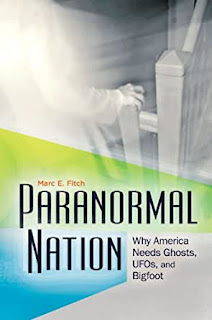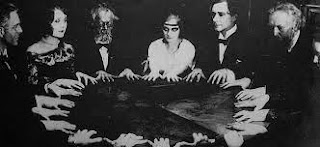Literature Review #1
"Analytic Cognitive Style Predicts Religious and Paranormal Belief" by Gordon Pennycook et al.
Pennycook, Gordon, et al. “Analytic Cognitive Style Predicts Religious and Paranormal
Belief.” Cognition, vol. 123, no. 3, Elsevier B.V, 2012, pp. 335–46,
doi:10.1016/j.cognition.2012.03.003.
(Link: https://bit.ly/3bk2i7H)
The purpose of this study was to find whether or not people’s cognitive abilities are correlated with their religious and paranormal belief. In the end, the researchers established that there was indeed an association between these variables.
Gordon Pennycook is an assistant professor of behavioral science at the University of Regina. His research is primarily focused on reasoning, judgement, misinformation, and beliefs. Pennycook has a PhD from the University of Waterloo and completed his postdoc at Yale University’s department of psychology.
One key term is “analytic cognitive style,” which refers to the style of thinking when people are able to critically examine the information that they are given, rather than giving into their intuitive responses. Another key concept is “acceptance bias,” which refers to the tendency of simply accepting things as true without question.
Quotes (Page numbers were not found in the article):
1. “Individuals with an analytic cognitive style should therefore be more likely to overcome the acceptance bias and reject or modify what they deem to be unwarranted ideas, whether encountered in the course of problem-solving, examining options in decision making, or considering the truth-value of ideas more generally.”
2. “The present research provides evidence that an analytic cognitive style, defined as a propensity to engage in effortful reasoning, is associated with a tendency to subscribe to both religious and paranormal forms of supernatural belief. Participants likely to reject an intuitive response for two types of reasoning problems were more likely to reject supernatural beliefs, even when cognitive ability, as well as sex, age, political ideology, education and religious engagement were controlled.”
3. “In our view, beliefs in things such as angels, demons, black magic, or mind reading are unlikely to be reinforced by analytic thought, not because they are especially intuitive, but because they are counterintuitive; that is, violations of a naturalistic worldview (Atran & Norenzayan, 2004). We suggest therefore that analytic individuals have decreased levels of supernatural belief because they are more likely to scrutinize ideas, detect such violations, and unbelieve them.”
This source is valuable because it helps to answer one of my research questions of why people continue to believe in ghosts despite the lack of evidence supporting any paranormal beliefs. This source indicates that people without an “analytic cognitive style” are more likely to believe in the paranormal because they fail to critically evaluate the information that they are given and, instead, choose to blindly accept it.



Comments
Post a Comment